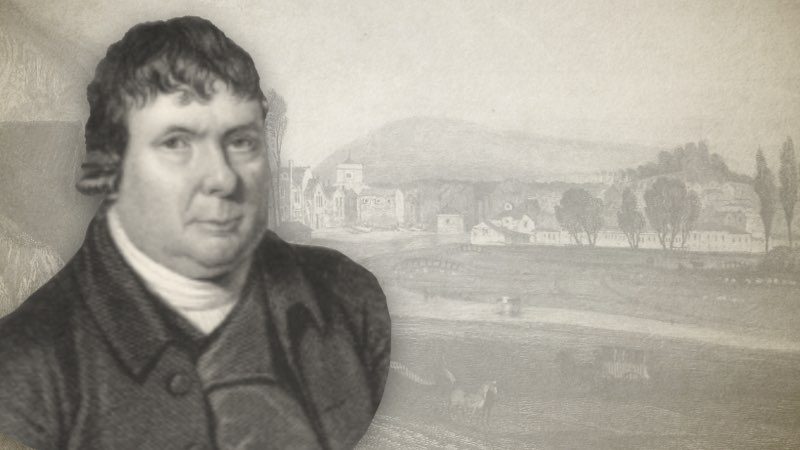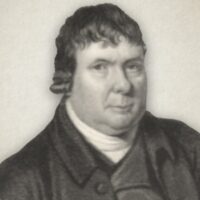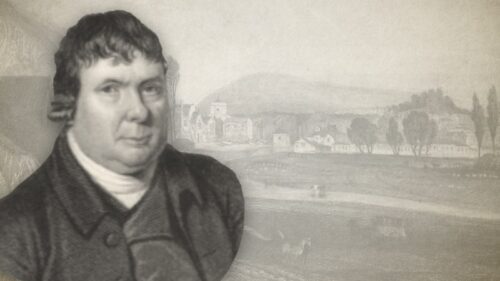
The Child of Liberty in Legal Bondage: Barrenness (8/11)
8. To shew the sensible dryness and barrenness that attend legal bondage.
By the law God doth not communicate his Spirit, and without his influences there can be no fruit. Refreshings come from God’s presence; but in the law his presence can never be enjoyed; no good fruit, unless we abide in the vine; for under the legal yoke Christ profits us nothing, with respect to sensible union and communion; our joys withers, and love waxes cold. No blossoming like a rose, with divine enlargement; no heavenly-mindedness, no life and peace enjoyed; nothing felt within but God’s anger, man’s rebellion, and Satan’s assaults; nothing without but gloominess, fresh scenes of troubles, and dissatisfaction with every thing. A preacher under this spirit may storm and rage, and think to frighten men out of their sins, and drive them to heaven with these lashes of legal terrors, and the thunderbolts of damnation; but all in vain; sinners are only hardened by it, and saints are starved. It is no better than attempting to “force the Spirit of grace itself, and bind his consort liberty.” Milton.
Such a soul, re-entangled with the yoke of bondage, communicates nothing but bondage to others. His conversation is nothing but complaints; groaning under sin, talking of his doubts, fears, and dreadful apprehensions. His converse savours of nothing, but horror, terror, torment, bondage, and wrath, dread, death, and damnation; and what he discourses of, that he leaves behind him wherever he does. He is barren in his soul, barren in his closet, barren in his family, barren in the pulpit, barren in the pew, barren in the church, and barren in the world. No unction, no salt, no oil of joy, no savoury meat, no water of life, comes by the law: it is a dark and dry mountain in a barren land; and he that goes there is filled with darkness, and his conversation is nothing but confusion, vain jangling, inconsistencies, and self- contradiction. Such souls are dried up like a potsherd; their joys are withered away, and they may cry, as others have done, “My leanness, my leanness, woe unto me!”
And, as to those poor blind souls, who tell us that legal bondage can never again influence a child of God; but that all this bondage, fear, wrath and terror, are only the stirrings of corruption, they would do well to inform us how corruption can work without the law; for “where there is no law there is no transgression; the motions of sin are by the law; the strength of sin is the law; by the law is the knowledge of sin. The law was added that the offence might abound;” and sin takes occasion by the commandment, and works in the members through the commandment. The law is man’s debt-book, and reveals the wrath of the creditor against the debtor. In Christ sin is done away, and God is well pleased; but nowhere else. And, as to making Satan the only instigator of the stirrings of corruption, is making him divided against himself. “The strong man armed (in an unawakened sinner) keeps his goods in peace:” and his work with a back sliding saint is to rock him to sleep, or lull him into carnal security, as he did David when he fell. It was not Satan, but God by his prophet, that awakened him out of his lethargy. The law therefore is a dreadful chastening rod in the hand of God: and, though there is no vindictive wrath to a chosen vessel, Christ having answered for him; yet a believer influenced by a spirit of bondage, and gone back to the law, feels no less than the wrath and anger of God working in him; as it is written, “In my wrath I smote thee. Thou wast angry with me, but thine anger is turned away, and thou comfortedst me.” “His anger endureth but a moment; in his favour is life; weeping may endure for a night, but joy cometh in the morning.” “In a little wrath I hid my face from thee, but in great mercies will I gather thee.”
William Huntington (1745-1813) was an English Calvinist preacher and prolific writer. His influence spread across the country and denominational lines. John Hazelton wrote of him—
“He published one hundred books, large and small, and once mentions being "weary at night, after having been hard at writing for fifteen hours during the day." Henry Cole wrote of him—‘’It may be asked why in my ministration, such as it is, I make frequent allusion to the ministry of that great and blessed servant of the Most High, the late Mr. Huntington. The reasons are these—1st. Because I believe he bore and left in Britain the greatest and most glorious testimony to the power of God's salvation that ever was borne or left therein. 2nd. Because I believe he planted the noblest vine of a Congregational Church that ever was planted therein; and 3rd. Because I believe the Churches that maintain the vital truths he set forth form a very essential feature in the Church-state of Christ in the land in these times, and perhaps will do so to the time of the coming day of God's retribution."
William Huntington, The Child Of Liberty In Legal Bondage (Complete)




